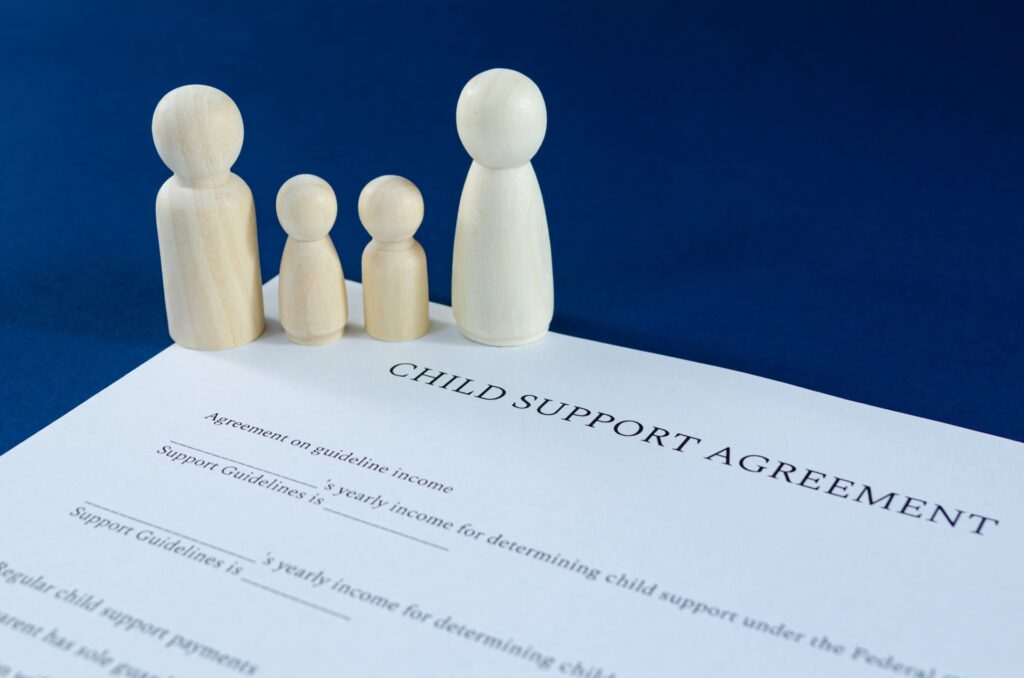Who Pays For Private School After Divorce in Washington State?
It’s no surprise that going through a divorce requires a great amount of time, energy, and focus. Even if both parties agree that ending the marriage is their best option, the sheer number of steps and decisions that need to be taken and addressed can be overwhelming. Moreover, divorcing couples who have children are also tasked with a series of decisions and negotiations to ensure that their children’s best interests are prioritized during the divorce process. In Washington state, divorcing parents need to create what’s known as a parenting plan, which establishes the roles and responsibilities of each parent and plans for the stability and well-being of the child after the divorce is finalized. For instance, separating parents can use the parenting plan to address which parent the child will live with for the majority of the time, where the child will spend holidays, how the parents plan on making major decisions about the child’s health and education, and how the parties will resolve any disagreements that arise in the future, among other considerations.
While divorcing parents in Washington state can work together to put a parenting plan in place without hiring legal counsel, it’s often worth seeking the guidance and support of a knowledgeable and experienced Seattle family law and divorce attorney to ensure that your child’s best interests will remain at the heart of every decision that is made. Conversations about how the child’s educational and healthcare expenses will be shared or divided between the two parents can become tense and heated, so it’s important to have an experienced legal advocate by your side who can help you achieve a fair and workable solution. In this post, we will explore how Washington state determines child support obligations during the divorce process, paying special attention to the handling of educational costs after divorce. With a caring Washington child support attorney to guide you through these tricky conversations, you can move through the divorce process with greater understanding and confidence.
Understanding How Washington State Determines Child Support Obligations
In Washington state, both parents have a legal obligation to provide financial support to their children, whether the parents are married or divorced. In most divorce cases, the child resides with one parent for a more substantial amount of time. Since this custodial parent will typically end up paying for the child’s daily, weekly, and monthly needs (i.e., lunch money, allowances, clothes, meals, etc.), the court will address this imbalance by ordering the child’s other parent (referred to as the noncustodial parent) to make monthly child support payments to the custodial parent. In other words, child support ensures that both parents contribute financially to the costs associated with raising the child. To calculate the amount of child support that the noncustodial parent will be required to pay, the court will refer to the Washington State Support Schedule for guidance. Essentially, the judge will assess each parent’s income and add these totals together in order to determine what’s known as the “basic support obligation” that is appropriate for supporting the number and ages of the children. It’s worth noting that the basic support obligation is designed to cover basic necessities, such as food, shelter, and clothing. For other expenses, like healthcare premiums, medical bills, or daycare costs, the judge can require both parents to share these expenses (usually according to the parents’ proportional share of income determined when completing the Washington State Child Support Schedule Worksheets). If you have any questions about child support determinations in the greater King County area, reach out to a highly experienced and caring Seattle family law attorney today to learn more.

Are Private School Costs Included in Standard Support?
As a parent, you want your child to enjoy access to high-quality educational opportunities. In recent years, confidence in public schools has been declining, and more parents are exploring other options like enrolling their children in private schools. However, this choice comes with a hefty price tag, as the average private school tuition in Washington state in 2025 is estimated to be around $15,565 per year. Generally speaking, private school tuition is not covered by the basic support obligation, which means that determining how the parents will pay for private school after a divorce can be challenging to navigate. There is no clear, one-size-fits-all rule that resolves these matters, so you and your child’s other parent will need to weigh several factors to arrive at a fair solution. As with any other consideration addressed in the parenting plan, the court and the parents will need to make decisions based on the child’s best interests. Below are some of the key considerations that can help guide these negotiations regarding parental responsibility in paying for private education in Washington state.
Previous Agreements About Private Education
Some parents have a previous agreement that expresses their intention of sending their child to private school. For instance, they may have outlined these preferences when they created a prenuptial or postnuptial agreement, or they may have set assets aside during the marriage that were expressly intended for this purpose. The court is likely to uphold these pre-existing agreements, so be sure to present them to your Seattle divorce lawyer to ensure that they are made known to the court when the time comes.
The Child’s Current Enrollment in Private School
The top goal of any family court judge is to preserve the child’s best interests as much as possible. In many cases, this means minimizing significant disruptions to the child’s environment, such as transferring to a new school or moving far away from their community. If the child is already attending a private school, the court is likely to find a way to continue this routine and incorporate these costs into parenting plans and child support determinations.
Whether Your Child Has Special Needs That Are Best Addressed Through Private Education
Sometimes, the public school system does not adequately address a child’s special needs. Generally speaking, parents find that private schools tend to have lower student-teacher rations, smaller class sizes, and more opportunities for educators and support staff to work one-on-one with students to support their unique needs. You can raise these points with your trusted Seattle child support attorney so that you can be sure that your concerns are acknowledged and addressed during parenting plan and child support negotiations.
Parental Income and Financial Resources
Since private school tuition is much more expensive than sending your child to public school, the court wants to know that both parents can afford these payments before incorporating this cost into the child support order. For the most part, Washington judges prefer that the parents attempt to work through these negotiations without heavy court intervention, as they trust that the parents know what’s best for their child. Whenever the parents are able to reach a compromise, the judge is likely to respect and uphold it. However, judges are prepared to step in to assist with these difficult conversations and heated disputes, working hard to protect and defend the child’s best interests at every opportunity. To learn more about what to expect during the divorce process in Washington state, reach out to an experienced and empathetic Seattle family law attorney to share your specific concerns and goals.
Modifying Child Support in Washington State
When a court establishes a child support order, it also recognizes that circumstances change. If a parent’s financial situation changes for any reason (i.e., losing a job, inheriting a substantial amount of property, etc.), then either party may petition the court for a child support modification. You may also seek a modification to an existing child support order if your child’s educational circumstances have changed. For example, if you and the other parent agreed to send your child to a private high school and you finalized the divorce while your child was still in middle school, you may have to petition the court for a child support modification that honors this pre-existing agreement about your child’s education. Enlisting the guidance and support of a trusted and experienced Seattle family law and divorce lawyer is the best way for you to understand your legal rights and options so that you can make more informed decisions with greater certainty and clarity.

Learn More About Creating Parenting Plans in Seattle Today
The ending of any long-term relationship can be an emotional and challenging experience. Even if you know that walking away from the marriage is what’s best for you in the long run, it’s natural to experience complicated emotions like grief, loss, frustration, anger, and more. It’s essential that you find ways of processing the emotional aspects of your divorce, such as leaning on friends and family members during this challenging and vulnerable time. As a parent, you may also be concerned about how the divorce is affecting your child, so it’s a good idea to seek help for your child during this transition. With a caring and trusted Seattle family law and divorce attorney by your side, you can feel more empowered to make these critical decisions that will lay a strong and secure foundation for your life’s next chapter.
If you have questions about parenting plans in Washington state, the dedicated and highly qualified legal team at the Hemmat Law Group is ready to provide you with the trusted and effective guidance you need to proceed with greater confidence and certainty. Please reach out to our Seattle office today at (206) 682-5200 to get started with a caring and experienced family law and divorce attorney.
The Hemmat Law Group (HLG) was founded in 1994 by Steven Amir Hemmat, a former DOJ Trial Attorney. We specialize in family law, supporting victims of the legal system.
The Hemmat Law Group help good people in bad situations.
Our divorce lawyers provide expert legal advice for all aspects of divorce, including child custody, support and property division. Contact us today.














